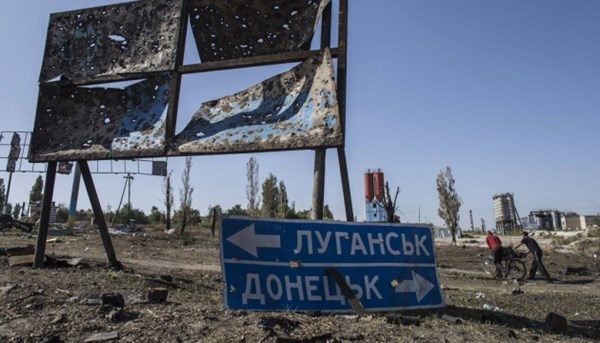Russian militant explains how Russia started war in Donbas
Without the Russian invasion, there would have been no war in the Donbas, because the local population did not want to be separated from Ukraine. They had neither the human resources nor adequate leaders to stage a full-fledged rebellion, writes the Russian militant Alexander Zhuchkovsky in his book “85 days of Sloviansk”.
The book states that Russia needed the Donbas in order to divert the world’s attention away from the occupation of Crimea and to further destabilize the situation in Ukraine. According to the author, no one in the Kremlin intended to annex the separated territories.
“In summer 2014 everything happened literally how Strelkov predicted: the militia squads were nearly crushed, cut off from the Russian border, hundreds of thousands of refugees flowed into Russia. And Russia still had to send in troops, although unofficially,” the militant writes.
According to Zhuchkovsky, the “militia” were few in number and would not have lasted long if Russian troops had not been brought in to support them.
“Without Russian support, the militia would not have lasted until autumn. The long-awaited assistance arrived only in the middle of August. Shortly before this, on 15 August Strelkov was forced to leave the Donbas – apparently this was one of the conditions for Russia’s military assistance,” he added.
The author says that at the start of August 2014, Russian President Vladimir Putin met behind closed doors with fifty Russian journalists in the Kremlin. During the meeting, they all “asked him literally in unison to send troops into the Donbas”.
While there was a delay before Russian troops were sent in, Zhuchkovsky notes that Russia started supplying the local Donbas militants with munitions as early as May-June that year. During this time alone, around 10 convoys of equipment and weaponry were sent in.
In his blog, the Russian journalist Denis Kazansky describes Zhuchkovsky as an “odious character” who holds Nazi views.
“Where others lie and use all kinds of euphemisms, the fanatic will be straightforward and sincere. For this reason, Zhuchkovsky’s book is particularly valuable to us. The author is completely fixated, but it is this fixatedness that makes his book honest and clearly shows us the intentions of the people who came from Russia into Ukraine in 2014 to kill Ukrainians,” Kazansky observes.
Recently another former Donbas militant gave valuable evidence about Russia’s involvement in the war in the Donbas – the former tank battalion commander woman Svetlana “Veterok” Dryuk, who was evacuated from the occupied territory in a Ukrainian counterintelligence operation.
